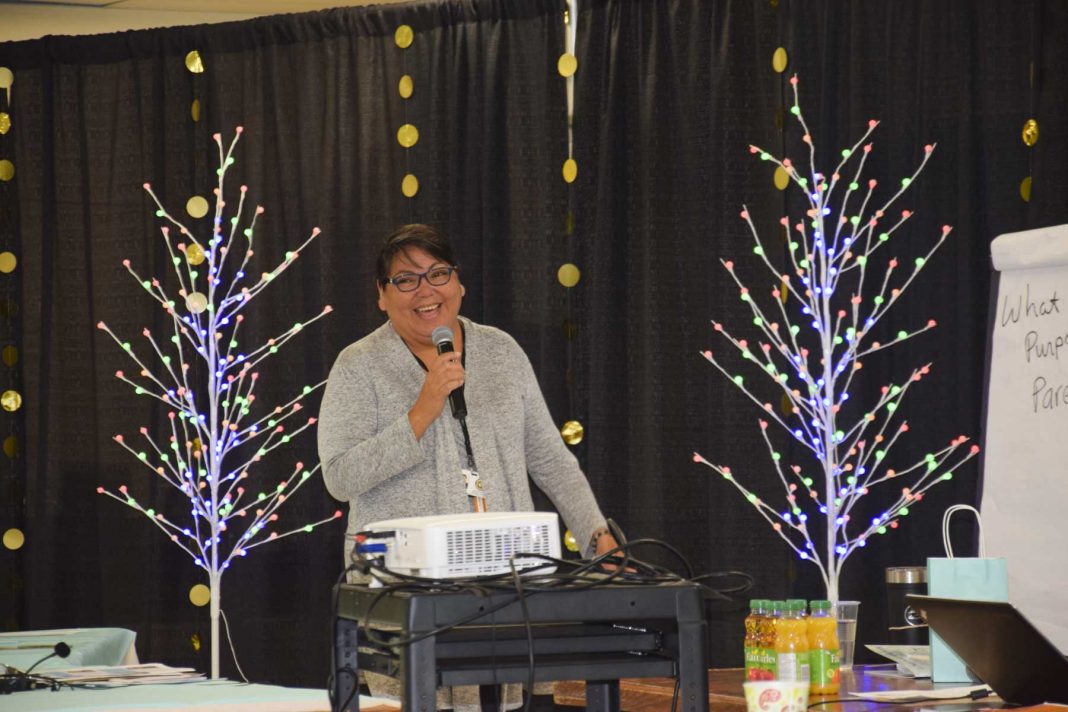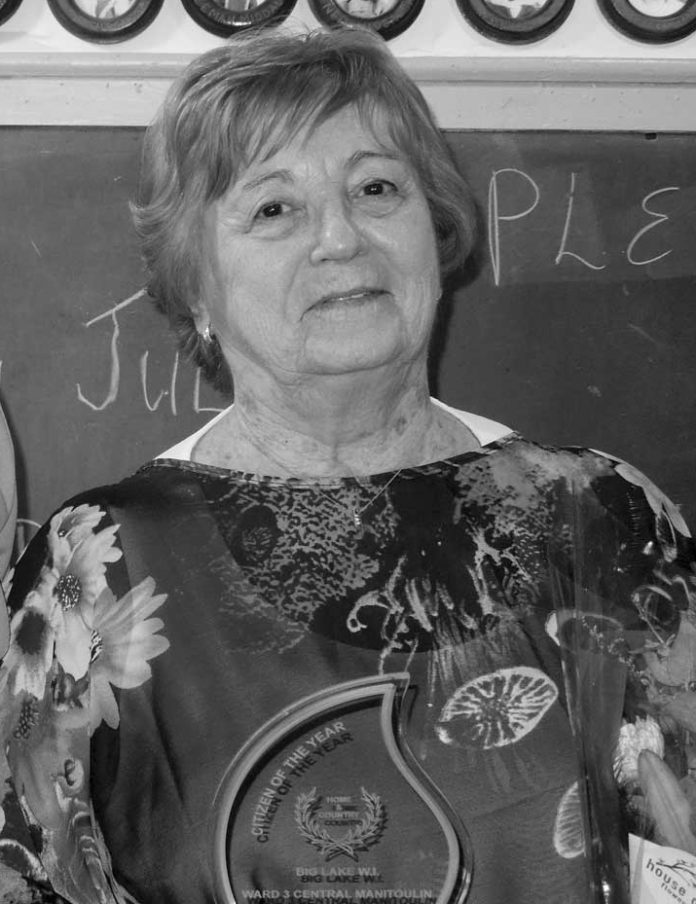WIIKWEMKOONG—Grandparents in the room during the parenting workshops at the Bonding and Attachment Within the Family Parenting Conference held last week in the upstairs hall at the Wiikwemkoong Thunderdome arena polled by The Expositor expressed one common reaction: “I wish I had known this when I was raising my children.”
The audience throughout the three-day conference was comprised of a mix of parents, caregivers, social and community workers and extended family and the agenda held something for just about everyone.
One of the key target demographics for the organizers was men. The first day men’s panel was designed to attract men to the Tuesday sessions, but males were somewhat thin on the ground during those sessions. The surprise came on Wednesday.
“Word obviously got out,” said Amanda Mishibinijima, a Canada Pre-Natal Nutrition Worker and one of the organizers of the event. “We had a lot of men come out for the second day.” Whatever the impetus, the jump in male attendance was a pleasant boost for the organizers who wanted to reach out and connect with that more challenging demographic.
“We really wanted to bring in the new dads,” agreed Judy Black, nurse manager of children’s services at the Wikwemikong Health Centre, pointing out that, due to the impacts of the residential school system, a lot of young males do not realize the importance of being “dad” and the critical role that “being present” plays in raising a family. The conference aimed at assisting fathers in becoming the kind of dads they want to be.
The men’s panel dealt with the responsibilities of men in the family and strategies for building family and included panelists Cody Wassengeso (Nadmadwin clinician), Lyle Peltier (Mnidoo Mnising Mental Wellness Crisis Team), Jesse Kaboni (Naandwe Miikaan Natural Helper) and parent Jason Peltier.
Perhaps it was the lure of the Wednesday afternoon sessions that piqued the male interest, however, as the Wiikwemkoong Lands and Natural Resources department brought a presentation on the fisheries activities, with the day ending with ‘Family Bonding in the Kitchen’ with Noojmowin Teg dieticians Joby Quaimboa, Natalie Hastings and Nola Thompson.
The first day of the conference began with a sunrise and pipe ceremony conducted by elder Dorothy Fox, followed by welcoming and opening remarks by master of ceremonies Kerry Assiniwe and Mary Jo Wabano, health services director at the Naandwechige-gamig Wikwemikong Health Centre.
In addition to the afternoon men’s panel session, Tuesday’s schedule of events included a workshop on prenatal and infant bonding and attachment by traditional knowledge keeper Gloria McGregor followed by the zero to seven years of age early childhood and attachment by traditional knowledge keeper Mary Elliott.
“One of the things we have found that young parents, especially young women, want is a deeper understanding of traditional teachings on child raising,” said Ms. Black. In addition to just knowing that traditional family resources such as naming ceremonies exist, she noted, young parents want to know how the ceremonies are conducted. “Who do you go to, what elder or older auntie might you seek out to gift your child with their spirit name.”
The final day of the conference saw Val Lavallee and Bernadette Francis delivering ‘Parenting 1, 2, 3,’ a presentation chock full of useful and practical information for new parents. The parenting session dealt with three styles of parenting, with an emphasis on finding a middle ground between an authoritarian approach and being too permissive.
The session began with a reading of the Robert Munsch classic ‘Love You Forever.’
Both of the parenting session presenters had their own experience in raising families and readily admitted that their own parenting would have benefitted from the information contained in the workshop—the combination of their own parents’ experiences playing a role in how they approached raising a family. The generational impact of the residential school system played a role in how many families approach child-rearing—even onto the present day.
“My father was a World War Two vet,” said Ms. Lavallee. “So I learned a very authoritarian style.”
“We always use the skills we learn from our parents,” she noted, “but we can change that and make it better for ourselves.” The goal of parenting is to prepare children for life and those needs can change through the generations—but some things remain constant.
“Limiting screen time is important,” said Ms. Francis. “Consistency is important. If you build the routines right from when you bring them home they become just how things are.”
Loosening the reigns from a strict authoritarian approach helps children learn independence, they pointed out. “You can start with choices, asking your child ‘do you want to wear the blue shirt or the red shirt today?’,” suggested Ms. Francis. “Or, ‘when you clean up you get to play with your friends’.”
It is also important to teach children to have confidence in themselves. Praising a child by thanking them for helping by putting on their own socks can be a simple early confidence builder.
The importance of self-care was also stressed, but as in all things balance is an important consideration. Too much self care can manifest itself into neglect. By taking time while the children nap to read a book or work on a craft are good examples of well-timed self care.
The parenting conference is a biennial effort by the Children’s Services Program of the Wikwemikong Health Centre in conjunction with community partners including Manitoulin Physio Centre, Raising the Spirit Mental Wellness Team, Mnaamodzawin Health Services, and the Wikwemikong Health Centre programs of Nadmadwin Mental Health Clinic, Long Term Care/Home and Community Services and Primary Care.





